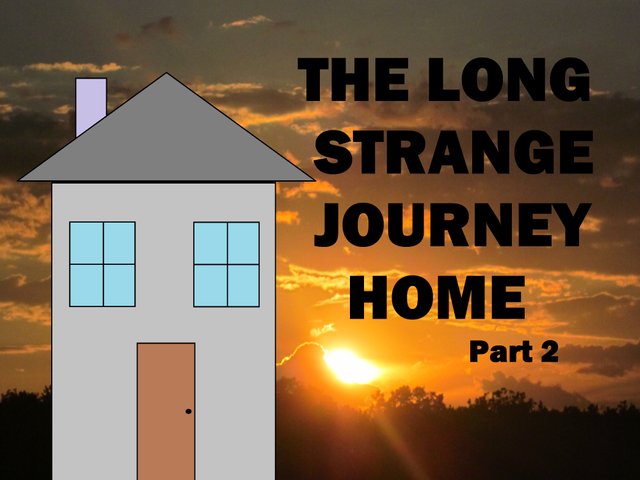
Today I will begin to share about the one of the choices that my family is making as we shift our focus back towards home. Please bear in mind that each of these areas I’ll be sharing about really become more like a puzzle piece than a building block. The actual goal is understood to the fullest extent once all of these puzzle pieces are assembled.
This first area to be evaluated is the food supply.

Three main options for a food supply exist:
Grow/Raise your own food.
Buy your food from someone else.
Grow/Raise some and buy the remainder
Of those three options, we will be aiming for option one, and most likely settling for option three. Here are some of the main reasons why.
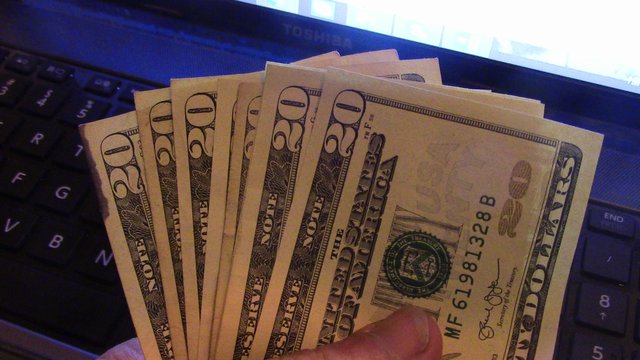
REASON 1: COST
One of the main components of being able to spend more time at home is dropping the cost of living. Often, it seems that more money can be made if you leave your house than if you attempt to work from home, so if I can lower our cost of living, it is more likely that I can successfully supply whatever income we still need from the homestead.
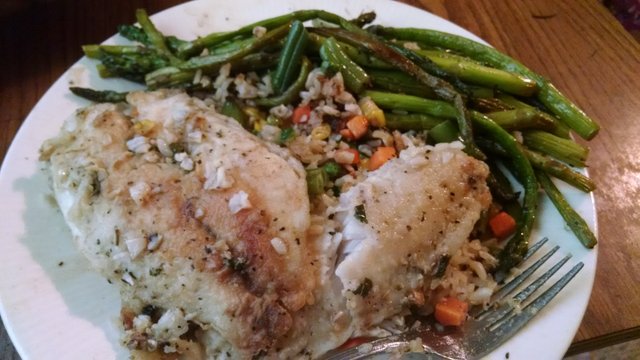
Each meal that each member of my family eats will have to come from somewhere. The more food that we can provide for ourselves, the less the grocery bill will be. I had never exactly dreamed of being a farmer or gardener, but these days it just makes sense. I remember once when a friend had made a comment pertaining to my gardening activities.
“You sure like to garden, don’t you?”
I answered honestly, and replied with something like this, “If there was no food in it, it wouldn’t interest me at all.” To be fair, it’s not that growing plants isn’t an interesting hobby, it’s just that these days my time is all the more precious. I am no longer just a single man who can constantly do as I wish. Now there is my wife and children to consider, so I had better be getting a return on my investment of time and effort if an activity is going to be worthwhile.
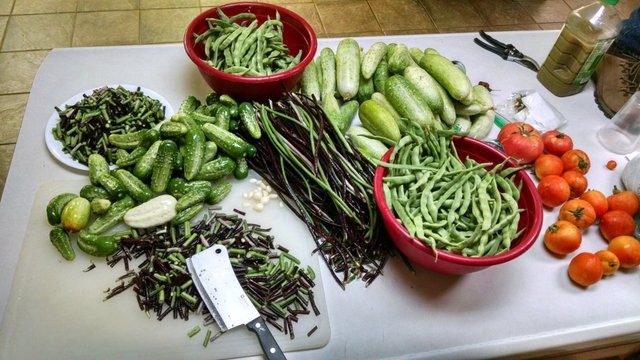
Since I do have both time and effort to invest in growing food if I choose to, the only other things that I need are soil and seeds. No matter where someone lives, it seems that there is at least room for a potted plant, if not some sort of garden, so we can basically cross soil off the list.
Seeds are the other requirement, and seeds are really cheap. When you compare the cost of the food that seeds can produce with the cost of seeds themselves, it becomes very easy to see the value in growing your own plants for food. For example, it would be very easy to purchase 30 Broccoli seeds for less than $2.00 USD. However, to purchase 30 full grown heads of Broccoli would cost at least $30.00 USD in many areas. Growing your own Broccoli would save you at least $28.00 USD then. If your hourly wage is $14.00 USD per hour, that is two less hours that you would need to go to work. Planting and taking care of the plants will take some time, but I would rather be at home with my family working in the garden than across town at a job.
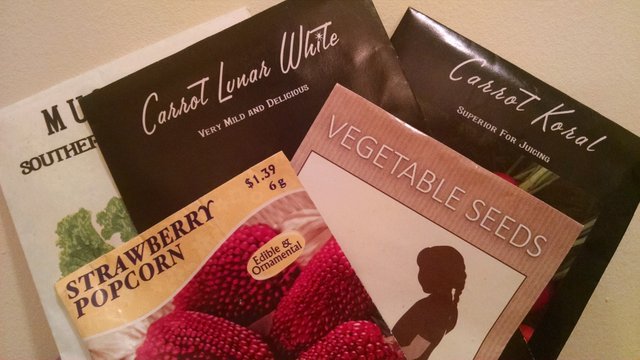
Purchasing your garden seeds is not the only way to get some. Many methods exist for obtaining free seeds as well. I showed one method of collecting seeds from the wild in my recent Free Asparagus Seeds post. Saving your own seeds is another great method. Many gardeners save their own seeds and are often happy to share. I know that @noganoo and @papa-pepper are!
You may have also noticed that the word “raise” was included next to the word “grow” above. Growing works for any food that comes from plants, but if you also enjoy eating meat, you may want to consider raising some animals for that purpose. Many people around the world raise cows, pigs, goats, sheep, rabbits, turkeys, geese, ducks, chickens, quail, and other animals for the purpose of meat.
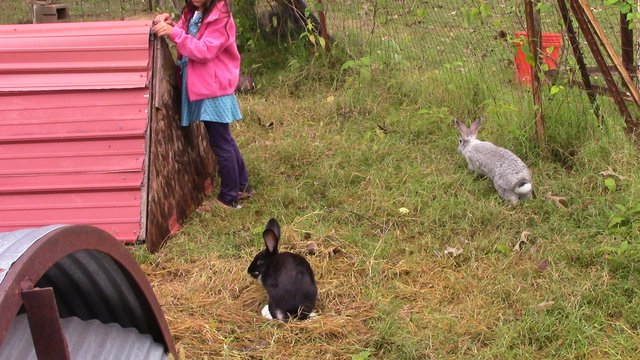
I know that some do not like the idea of killing animals for food, but it certainly is a freedom that many take advantage of. The animals would eventually die anyway, but if they are butchered, at least someone can receive a benefit from the death of that animal. Also, if it were not for the purpose of having these kinds of livestock, many species would go extinct. Many various varieties of livestock have already been lost forever to extinction in recent years. Why? When the majority of people stop raising their own meat and opt to purchase it at the grocery store, often only the mass-produced, cost-effective varieties of livestock are needed. For big businesses, it is just not cost effective to invest their resources in the preservation of heritage breeds. You can check out this post for more on the subject.
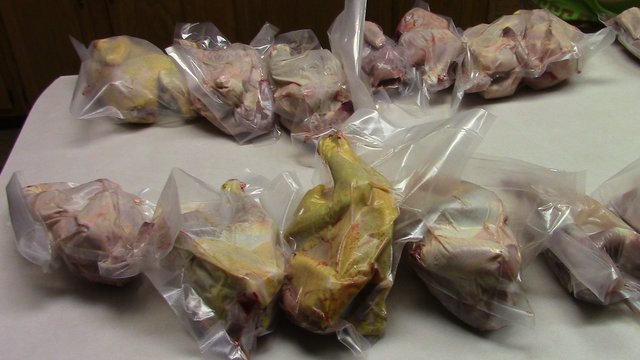
For those who do eat meat, consider how much your bill is on a yearly basis. For what I spend on meat, I could easily purchase the live animals instead of the processed, packaged meat. The meat you can only eat, but the animals you can breed first, and then still eat.
Imagine if just by buying two hamburgers you could make more hamburgers and not need to buy any more. Basically, when you get a male and a female of a species, you have that opportunity. We currently have three female pigs and one male, four female rabbits and one male, and seven hens and five roosters. This will allow us to have meats like pork, rabbit and chicken without having to purchase them.
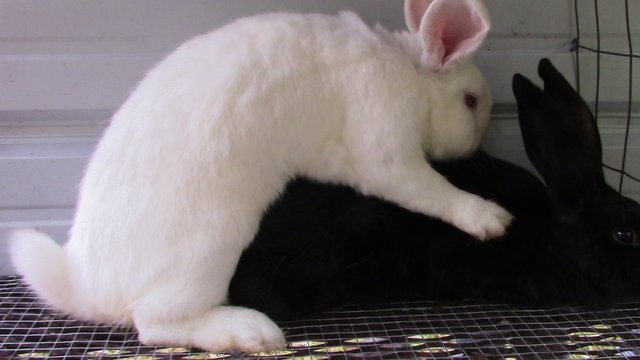
Of course not everyone that enjoys hamburgers has room to keep some cattle, and I understand that. Yet, many animals that can be raised for food take a lot less space and food than cows do. I’ve heard it said that a buck (male rabbit) and two does (female rabbits) can give you as much meat in one year as butchering a whole cow could provide. Because of the reproduction rates of rabbits, they can be a great meat source.
Think about the cost of that. Three rabbits can often be purchased for $10.00 USD each, or $30.00 USD total. Of course you will have to feed and house them, but to turn an initial investment of $30.00 USD into the same amount of meat that butchering an entire cow would provide is still incredible. To purchase a cow for the same purpose would cost thousands.
Obviously, the cost of growing and raising your own food is a massive benefit.

REASON 2: TRUST
These days it is getting more and more difficult to trust your food supply. Some time ago, another user inquired as to how we made sure that the eggs our chickens were laying were safe to eat. The question honestly caught me off guard. I had never really considered it too much. Other than washing our hands and thoroughly cooking the eggs, I’m not sure how much more there is to the food safety puzzle in that situation.
As I continued to ponder, I wondered, how does one make sure that they won’t get salmonella or food poisoning when they eat at a local restaurant? How do you make sure that the produce from the local grocery store is safe to eat?
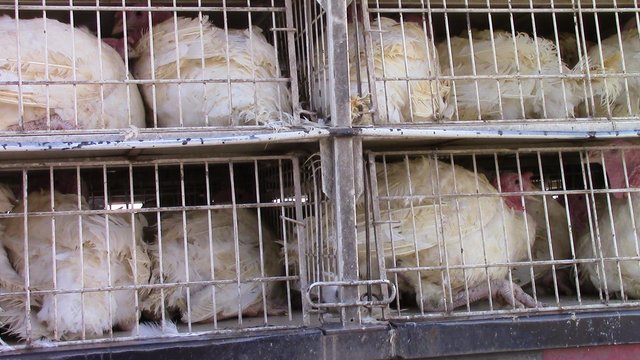
Often, we just take these things for granted. We assume a certain level of safety when we purchase a meal or some food. Yet, many people get sick from what they eat every day, even with so many rules, regulations, and government entities attempting to prevent just that.
The way that a food is produced also plays a role in being able to trust the source. When I raise my own livestock and grow my own vegetables, I can control certain variables. If I don’t want 10,000 chickens packed into a concrete building being fed GMO grain laced with antibiotics then I don’t have to raise them that way. If I don’t want mutant scientifically engineered round-up resistant pepper plants being pumped full of chemical fertilizer and pesticides, then I don’t have to grow my garden that way. I really don’t think that more needs to be said on that specific issue.
I think that it is worth pointing out just one more factor though, when it comes to trusting the food source. I find it strange that almost any building material you can purchase at a building supply company will have a label on it notifying you that according to California, it probably contains chemicals known to cause cancer.
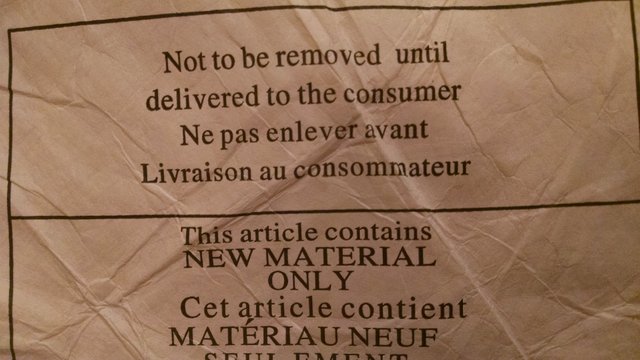
Also, if you buy some new furniture or a mattress you’ll probably notice the label that only you are now authorized to remove, because it is illegal for anyone to remove that tag prior. However, foods are not required to be labeled notifying the consumer of whether or not they contain GMOs.
I’m not saying that there is a conspiracy or an agenda, just that it is hard to trust people in situations like that, especially since the food supply is one of the easiest ways to launch an attack on people.

REASON 3: CONNECTION
There is a large disconnect between a lot of people and their food supply. Meat doesn’t come in shrink-wrapped chunks from your grocer’s cooler and not every apple looks identical with a shiny wax coating. As I expressed in Ever Miss That Feeling?, there used to be a connection with lead to a certain appreciation.
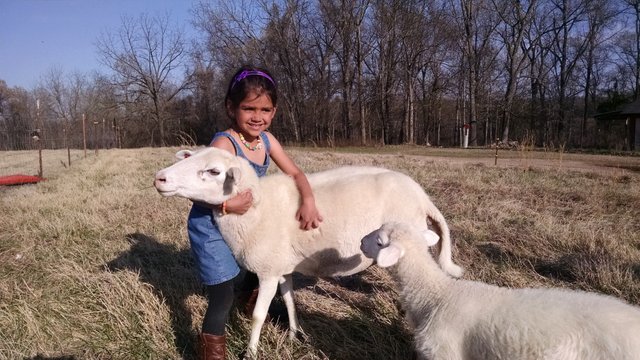
To actually be involved in the process of raising and growing your own food provides an entirely different mindset than simply making money and using that money to purchase cans of food at the store. I'd like my children to have a real understanding of the actual source, even if they opt to get their food the other way once they grow.

REASON 4: SAFETY NET
In a time of crisis, the common foods supplies will be of no use. During a crisis that includes a power outage, no restaurant can serve you a meal, and any food that they have on hand will either soon be looted or it will spoil. The same will be true for grocery stores and warehouses. This is another great reason to grow at least some of your own food.
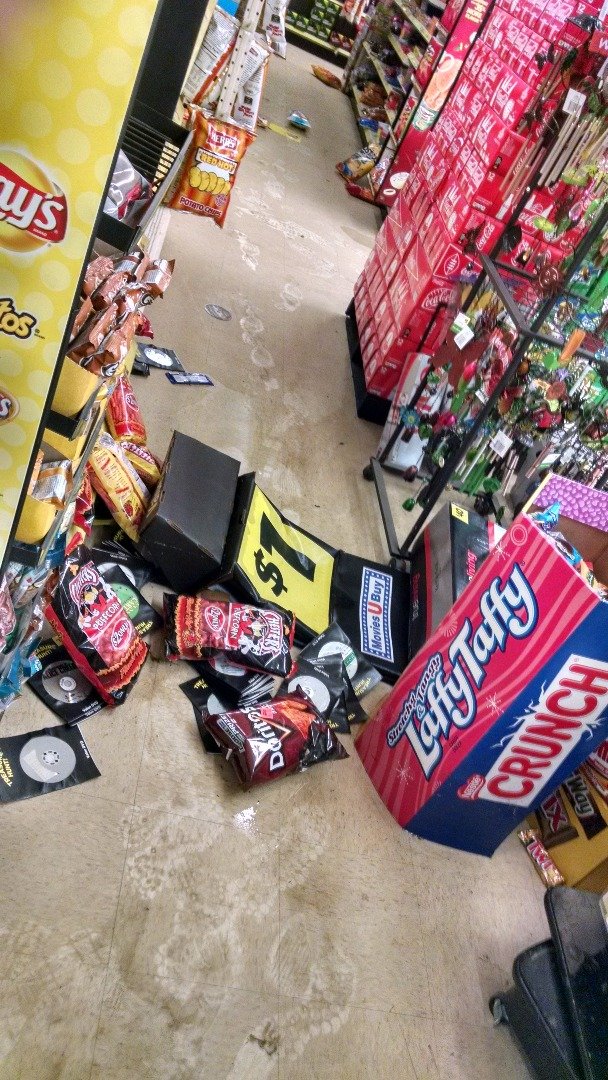
A garden can be a continuous supply of food during harvest. If you pick a ripe tomato today, chances are you may have another one to pick tomorrow. I’ve been harvesting Chinese Noodle Beans for at least four months straight now!
Also, many who learn the skills required to grow their own food also learn the skills to preserve that harvest. When you ferment, dehydrate, can, and store your own summer and fall harvest, you’ll often have food on hand that can help out in the winter and spring. This is how many people lived not too long ago, and it is a lifestyle that is still attainable these days.
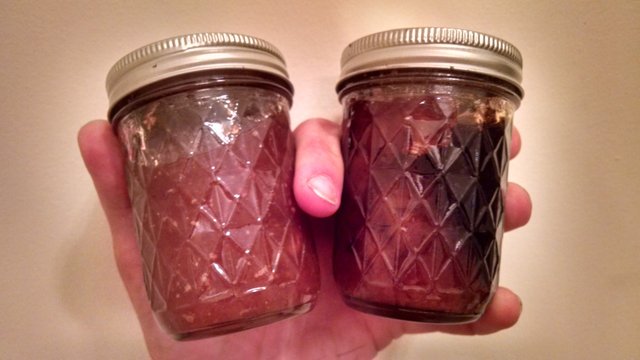
The same is true for livestock when the continual source is considered. If I eat the eggs from my chickens today, they will lay more tomorrow. I will not have to go pick up another dozen every time I want to feed my family. The comparison of rabbit meat to cow meat works well here too. When a cow is butchered, there is a lot of meat that has to be taken care of. Frozen meat does not last long in lengthy power outages. Smaller meat supplies, like rabbits, can be butchered as needed, and the rest can be left outside instead of in the freezer.
If I eat some rabbits now, but do not eat them all, the ones that remain can make more to eat later.
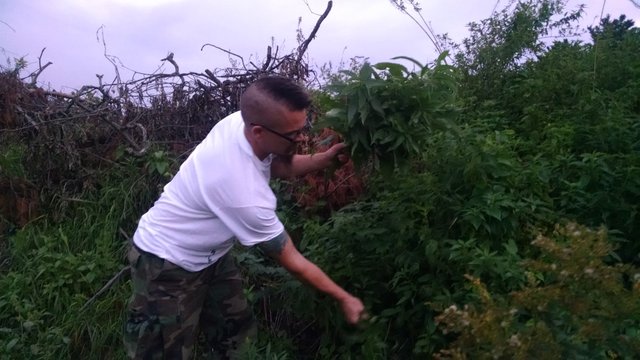
Gaining skills now like the ability to hunt, fish and how to forage for wild edibles can also be a great way to offset the food cost and to be prepared with a valuable safety net in case your life depends on being able to find food in the wild.

CONCLUSION
Reducing the cost of living and being able to be connected to an on-hand, trustworthy food supply are great reasons why we are returning home when it comes to our food. Obviously, this choice won’t work for many lifestyles and it will require a lot of hard work, but it’s the direction that we are heading, and we like the idea. For us, it’s just part of our long, strange journey home.
Stay tuned tomorrow for THE LONG STRANGE JOURNEY HOME Part 3/6.

FOLLOW
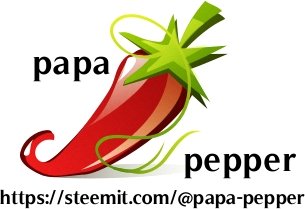
Awesome Handcrafted @papa-pepper logo kindly donated by @vlad - Thank you!!

OPERATION TRANSLATION logo provided by @oecp85.
(click link above for more info on Operation Translation.)
#rabbitporn
But seriously, it's an incredible journey, and one that many people are undertaking (to some degree or another) and many more of my generation (mid-30s) express a desire for.
The internet and wonderful platforms like steemit allow us to see each other across the world taking similar journeys, and I think in some ways maintain a connection to 'civilisation' that so many fear losing in taking that journey.
Downvoting a post can decrease pending rewards and make it less visible. Common reasons:
Submit
Agreed, I'm mid-30s myself.
Thanks @aubergedulis.
Downvoting a post can decrease pending rewards and make it less visible. Common reasons:
Submit
@papa-pepper I know one millionaire who is very passionate about coaching free lancers and he resigned last year to be a farmer, he said that to farm - he bought himself a huge piece of land, built a house in an island and is starting farming now and he loves it -
I think when you grow up being exposed to this - growing your own food - it becomes a part of life you'd have a hard time shaking off you later in the future, trust me I thought I did till I was given another chance to do it.
Kudos @papa-pepper you're doing a great job - not just to your family but to the world specially that you're growing heirloom seeds against monstersanto's.
Downvoting a post can decrease pending rewards and make it less visible. Common reasons:
Submit
Wow, that is inspiring and encouraging.
Thanks for sharing!!!
Downvoting a post can decrease pending rewards and make it less visible. Common reasons:
Submit
Send me about 15 pictures like the kid and the goats and I'll make you the images for a book.
Downvoting a post can decrease pending rewards and make it less visible. Common reasons:
Submit
I'll come up with a plan and maybe take some specifically for it, so give me a little time, but I'll be working on it
Thank you so much for your generous offer @vegascomic!
Downvoting a post can decrease pending rewards and make it less visible. Common reasons:
Submit
It's probably best to see the pictures first, then decide the style to create them in. I think a colored pencil would work good for kids as well as your genre. With what you do, you're pretty much half-way there.
Downvoting a post can decrease pending rewards and make it less visible. Common reasons:
Submit
We will see, and I'll get working on it.
Then we can see what you think!
Downvoting a post can decrease pending rewards and make it less visible. Common reasons:
Submit
I always say a dollar saved is 2 dollars earned . because after you pay all the taxes on money earned you have about half left .
Downvoting a post can decrease pending rewards and make it less visible. Common reasons:
Submit
You know @me-tarzan, for a wild man who lives out in the jungle with the animals, you're wiser than most give you credit for.
That is a great perspective to have, and you're right.
Saving is way better than earning!
Thanks for sharing that insight.
Downvoting a post can decrease pending rewards and make it less visible. Common reasons:
Submit
Great article. Congratulations for moving towards more self-sufficiency and healthier food.
Additional benefits of growing and raising food are convenience (closer than store), waste reduction (just pick the lettuce leaves that you need), reduction in carbon emissions (less gas to ship seeds), and reduction in packaging.
Given how fast stores sell out before a big storm, you know it wouldn't take much to disrupt the food supply. You will be better prepared than most of us.
A friend of mine completed a master preservers' class through the Extension Service, and now she canning all sorts of food.
Downvoting a post can decrease pending rewards and make it less visible. Common reasons:
Submit
Yeah, I kind of just scratched the surface there, as it is difficult to be exhaustive on deep subjects like this.
We are learning every day and making progress, so thanks for your encouragement!
Downvoting a post can decrease pending rewards and make it less visible. Common reasons:
Submit